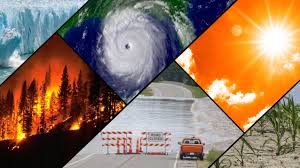Why
Emmanuel Macron Is Going to Recognize Palestine and What Its Outcomes Will Be is a topic that blends diplomatic
strategy, global power dynamics, and moral arguments. With increasing
international pressure and shifting regional allegiances, Macron’s potential
move would mark a historic pivot in France’s foreign policy. In this in‑depth
article, we explore seven key motivations behind the decision and what lies
ahead in the aftermath.
1.
Historical Context of France and Palestine
France
has long held a complex role in the Middle East. Its colonial legacy in the
Levant and its active role in UN diplomacy shape its contemporary posture.
Macron, building on this legacy, sees formal recognition as a continuation of
France’s historical engagement in the region.
·
French foreign policy tradition
France
has consistently backed UN resolutions supporting Palestinian self‑determination.
Macron’s leadership is in line with this tradition to affirm universal values
on the international stage.
·
Previous statements and policy shifts
Macron
has repeatedly voiced support for a two‑state solution, signaling France’s
readiness to take formal steps beyond rhetoric.
2.
Macron’s Political Motivations
Macron
may be responding to multiple internal and external political signals.
·
Domestic politics and public opinion
French
public opinion polls show growing sympathy toward Palestinian rights.
Recognizing Palestine would resonate with left‑leaning voters and socially
liberal constituencies.
·
Role within the European Union
France
has often positioned itself as a leader in EU foreign policy. A bold move on
Palestine would reinforce its status and potentially shift the EU’s collective
stance.
3.
Geopolitical and Security Considerations
France’s
interests in Middle Eastern security are a critical factor.
·
Middle East diplomacy dynamics
By
recognizing Palestine, France aims to rebalance its ties—engaging both Israeli
and Arab partners more equally.
·
Counter‑terrorism priorities
Stabilizing
Palestinian territories could reduce extremism, aligning with France’s broader
security strategy.
4.
Pressures from EU Allies and Africa
France’s
move can be influenced by international solidarity.
·
African and Arab states’ influence
Many
African and Arab states have long supported Palestinian sovereignty. Macron’s
decision may aim to strengthen diplomatic bonds on multiple continents.
·
EU cohesion on Middle East policy
As
bloc divisions deepen over Middle East policy, France may step forward to unify
EU diplomatic posture.
5.
Human Rights and International Law Concerns
France
often frames its international actions in legal and moral terms.
·
United Nations resolutions
Recognition
would align France with UN General Assembly resolutions affirming Palestinian
statehood and rights under international law.
·
Humanitarian arguments
Reports
of civilian suffering in Gaza and the West Bank reinforce moral imperatives for
action.
6.
Economic and Trade Implications
Recognition
carries tangible economic reverberations.
·
Trade relations with Israel and Palestine
France
may offer new avenues for trade and investment with Palestinian markets, while
navigating sensitive commercial ties with Israel.
·
Aid, development funding, and investment
Recognition could unlock increased aid flows and economic cooperation targeted at infrastructure and governance in Palestinian areas.
7.
Macron’s Strategic Vision and Legacy
This
decision may reflect Macron’s long‑term vision for France’s role.
·
Leadership on international stage
France’s
proactive stance could elevate its voice in global peace negotiations.
·
Positioning France as peacemaker
Macron
may seek to cast France as a broker between conflicting states and as a
champion of Middle East stability.
Outcomes
of Recognition
·
Diplomatic repercussions with Israel
Israel
is likely to express strong objections, possibly recalling its ambassador or
delaying bilateral cooperation.
·
Relations within EU and shifting alliances
France
could inspire other EU nations to follow suit, potentially triggering a domino
effect in EU recognition policies.
·
Impact on peace negotiations and regional stability
Formal
recognition might boost Palestinian negotiating leverage in peace talks—but
also risk short‑term tensions.
·
Domestic public reaction and political fallout
Macron’s
move could trigger both praise and criticism among French citizens, impacting
his approval ratings and electoral prospects










